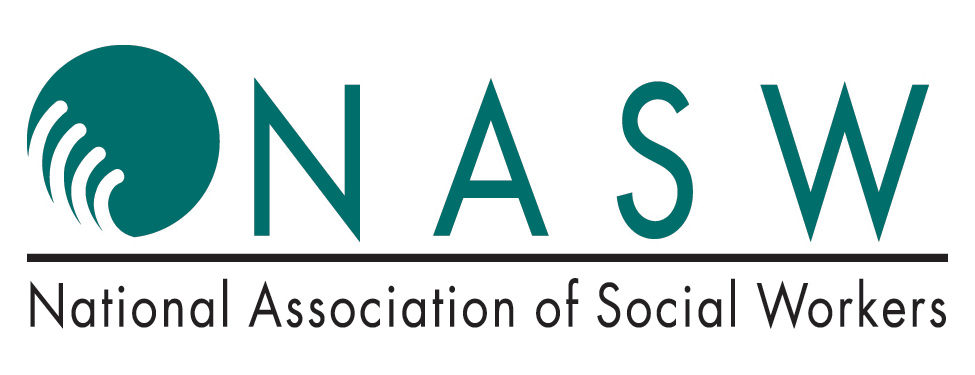
WASHINGTON, D.C. - The National Association of Social Workers (NASW) commends Congress and the White House for passing into law the $2.2 trillion economic relief package that will provide aid to individuals, families and communities.
“Our nation is experiencing unprecedented levels of psychological and economic devastation as a result of this public health crisis” said NASW CEO Angelo McClain, PhD, LICSW. “We applaud lawmakers and the Trump Administration for working quickly in a bipartisan way to bring relief to working class and middle-class Americans, many of whom are struggling to afford housing, food and health care during this pandemic.”
The Coronavirus Aid, Relief and Economic Security (CARES) Act, the third COVID-19 relief package that Congress has enacted in as many weeks, includes extended and increased unemployment insurance, coronavirus testing at no cost to patients (including people who are uninsured), and a $1,200 rebate for all U.S. residents with an adjusted gross income of up to $75,000 ($150,000 if married). It also contains a number of other provisions that will go a long way towards helping people as they cope with this crisis. This includes:
Economic Security
$1 billion for the Community Services Block Grant to help communities address the consequences of increased unemployment and economic disruption.
Mental Health
Extending the Medicaid Community Mental Health Services demonstration that provides coordinated care to patients with mental health and substance use disorders, through November 30, 2020.
Providing $425 million for the Substance Abuse and Mental Health Services Administration to increase access to mental health services in communities, provide suicide prevention services and care for people who are homeless. The bill also includes $45 million to respond to family and domestic violence, including providing services or shelter.
Food Security
Waiving nutrition requirements for Older Americans Act (OAA) meal programs to ensure older adults can get meals in case certain food options are not available.
Increasing the budget for the Supplemental Nutrition Assistance Program (SNAP) by $15.5 billion, and $8.8 billion in additional funding for Child Nutrition Programs in order to ensure children receive meals while school is not in session.
Providing $200 million for food assistance to Puerto Rico and the territories to ensure these citizens receive more support during the pandemic.
Child Care and Development
$3.5 billion for the Child Care Development Block Grant. This funding will allow childcare programs to maintain critical operations and ensure first responders and health care workers can access childcare during the pandemic.
$750 million for Head Start to meet emergency staffing needs.
Housing
Providing $3 billion in rental assistance protections for low-income Americans.
Including $900 million in Low Income Home Energy Assistance Program (LIHEAP) funds to help lower income households heat and cool their homes.
Despite being the largest stimulus package in the nation’s history, more relief will be needed due to the scope and severity of the pandemic. The legislation comes amid record-breaking unemployment claims. While there are funds in the bill for unemployment insurance coverage, that benefit is time-limited and does not cover workers’ full salaries. Further, low-income and other marginalized communities will disproportionately experience the impact of this public health crisis.
In terms of food security, despite the increase in the SNAP budget, the package does not include a 15 percent increase in the SNAP maximum benefit. Also, COVID-19 prevention and intervention services among vulnerable populations such as those in prisons, jail, juvenile detention and immigration detention and people who are homeless was also only partially funded.
We are also disappointed that only 20 percent ($400 million) of the $2 billion needed to ensure an inclusive and fair voting process for primary and general elections was provided and allows discretion by states. NASW along with 200 organizations called for full funding of this effort in order to remove all barriers to maximum participation in the 2020 election for communities of color and marginalized communities.
Despite these gaps, which NASW will be working to address in anticipated subsequent COVI-19 relief packages, the legislation does include provisions that are helpful to social workers. Employers may provide a student loan repayment benefit to employees on a tax-free basis. An employer may contribute up to $5,250 annually toward an employee’s student loans, and such payment would be excluded from the employee’s taxable income. Also, the Secretary of Education is authorized to postpone student loan payments, principal and interest for six months, through Sept. 30, 2020, without penalty to the borrower for all federally owned loans.
The package will also facilitate even greater regulatory flexibility in telehealth than has already been implemented through prior COVID-19 policy actions. The bill gives the Centers for Medicare and Medicaid Services (CMS) authority to waive requirements so that enrolled providers, including clinical social workers, can provide telehealth services using audio-only devices (such as telephone landlines). Under recent CMS guidance, clinical social workers and other eligible providers can, during this public health emergency, use smartphones with video chat apps such as Skype and Apple Facetime to provide services. They can also continue to use HIPAA-compliant video conferencing platforms, which was permissible prior to the pandemic. NASW will continue its advocacy to ensure that audio-only access is permitted by Medicare, which is already allowed in a number of states.
“This economic stimulus plan is an important step in helping our nation cope with this crisis,” McClain said. “We are also glad it will give social workers some of the supports that they need, such as greater flexibility to practice telehealth as they continue doing the hard work of ensuring clients access to services, including health care and mental health care they need as our nation contends with this pandemic.”
The National Association of Social Workers (NASW), in Washington, DC, is the largest membership organization of professional social workers. It promotes, develops, and protects the practice of social work and social workers. NASW also seeks to enhance the well-being of individuals, families, and communities through its advocacy.
